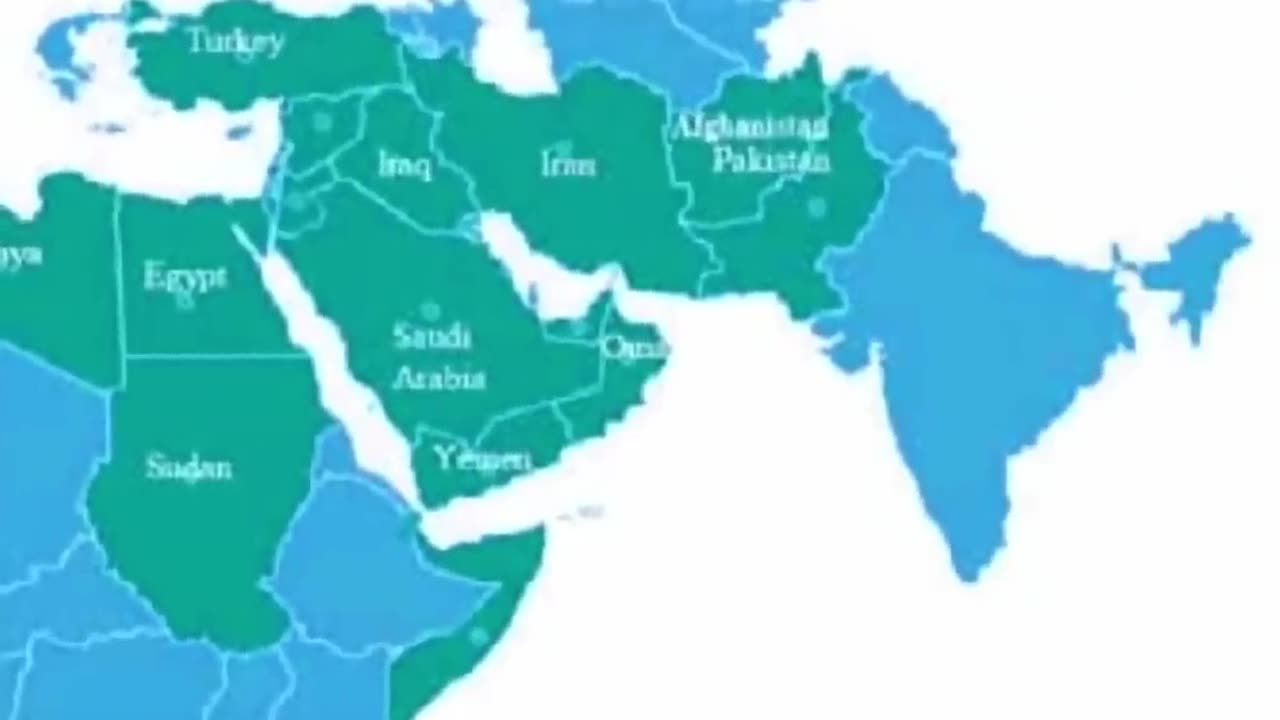Premium Only Content

BRICS Expansion recieves continuous support from Asia, Africa and South America. ✓>>👇
The emergence of BRICS (Brazil, Russia, India, China, and South Africa) as a powerful bloc in the world economy has been a remarkable achievement in recent times. These five countries represent more than 40% of the world's population and their combined GDP accounts for over a quarter of global output. The BRICS nations have shown significant growth in the past decade, and the group's economic and political influence is increasing with each passing year.
The idea of BRICS was initially proposed by Goldman Sachs in 2001. However, it was only in 2009 that the first formal BRIC (without South Africa) summit was held in Yekaterinburg, Russia. Since then, the group has expanded to include South Africa and has held annual summits to discuss a range of issues, including economic cooperation, trade, and global governance.
The continuous support to BRICS expansion is vital for several reasons. Firstly, BRICS is an important driver of the global economy. These countries have a combined GDP of around $18 trillion and are among the fastest-growing economies in the world. As such, they represent a significant market for businesses looking to expand their operations.
Secondly, BRICS nations are important players in global politics. The group has become a powerful voice in international forums such as the G20, where they advocate for greater representation of developing countries in global governance. The BRICS countries have also worked together to address issues such as climate change, cybersecurity, and terrorism.
Thirdly, BRICS is a platform for south-south cooperation. As developing countries, the BRICS nations face similar challenges, including poverty, inequality, and inadequate infrastructure. By working together, they can share experiences and best practices, and find solutions to common problems.
Furthermore, BRICS has the potential to transform global trade. The group has already taken steps to reduce their reliance on the US dollar and establish their own financial institutions, such as the New Development Bank (NDB) and the Contingent Reserve Arrangement (CRA). These institutions provide an alternative to the traditional global financial system dominated by Western countries.
In addition to economic and political cooperation, BRICS nations are also collaborating in the fields of science and technology, education, and culture. The BRICS Science, Technology and Innovation Framework Program has been established to foster joint research projects and knowledge-sharing initiatives. BRICS universities are also partnering to offer joint degree programs, and cultural exchanges are being promoted to enhance understanding and cooperation.
Moreover, the BRICS nations are committed to sustainable development. In 2015, the group endorsed the United Nations' 2030 Agenda for Sustainable Development and the Paris Agreement on climate change. The BRICS countries have also launched their own initiatives, such as the BRICS Clean Energy Research Platform, to promote clean energy technologies.
The continuous support to BRICS expansion is not only beneficial to the member countries but also to the rest of the world. BRICS has the potential to create a more balanced and equitable global order. By promoting south-south cooperation, the group can help to reduce the gap between developed and developing countries, and foster a more inclusive and representative international system.
Furthermore, BRICS can serve as a counterbalance to Western dominance in global governance. The group can provide an alternative perspective on issues such as trade, human rights, and climate change, and challenge the traditional power structures that have shaped the international system for decades.
In conclusion, the continuous support to BRICS expansion is crucial for the group's continued success and for the world as a whole. The BRICS nations have shown remarkable growth and resilience in the face of global challenges, and their commitment to cooperation and sustainable development is a model for the rest of the world. By working together, the BRICS countries can create a more balanced and equitable global order, and promote
-
 LIVE
LIVE
FreshandFit
4 hours agoAfter Hours w/ Girls
26,243 watching -
 2:33:36
2:33:36
Badlands Media
5 hours agoOnlyLands Ep. 21
37.5K3 -
 1:07:26
1:07:26
Inverted World Live
8 hours agoThe War Against Robots w/ Joe Allen
62.7K2 -
 6:08:31
6:08:31
SpartakusLIVE
7 hours agoWARZONE NUKE IS BACK?! || Solo Challenge CHAMPION to start, duos w/ the Dawg later
70.5K -
 1:00:18
1:00:18
Man in America
9 hours agoBig Pharma’s Empire of Lies Is COLLAPSING as People Turn to Natural Medicine
32.3K9 -
 LIVE
LIVE
Drew Hernandez
11 hours agoGHISLAINE MAXWELL SAYS CLAIMS EPSTEIN WAS INTELLIGENCE ASSET ARE BULLSH*T?!
660 watching -
 29:54
29:54
Afshin Rattansi's Going Underground
19 hours agoUkraine: Prof. Anatol Lieven SLAMS Europe’s ‘BLOODY STUPIDITY’ as Trump Negotiates with Putin
12.4K5 -
 15:27
15:27
robbijan
1 day ago $2.35 earnedThe Emperor’s New Labubu & The Spiritual War Behind Everything
37.3K40 -
 LIVE
LIVE
GritsGG
17 hours ago36 Hour Stream! Most Wins 3420+ 🧠
476 watching -
 2:05:47
2:05:47
TimcastIRL
5 hours agoTrump FBI Raids John Bolton Amid Classified Docs Investigation | Timcast IRL
164K62